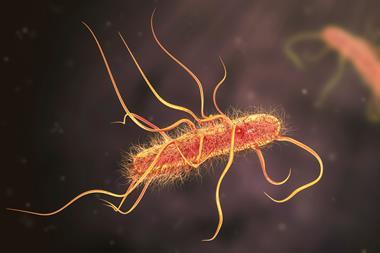Antibiotics can kill bacteria without the need for reactive oxygen species (ROS). That’s the claim of new research, which has added new evidence into the emerging debate over how antibiotics exert their lethal effects.
A study in 2007 suggested that all antibiotics kill by triggering the production of ROS, which interfere with bacterial cell processes.1 This hypothesis gained widespread support, but there is a growing body of evidence that this is wrong. This latest study, led by Frederic Barras from Aix-Marseille University in France2, showed that Escherichia coli strains that were hypersensitive to ROS, such as superoxide or hydrogen peroxide, were no more susceptible to antibiotics than unaltered strains.
They also investigated a mechanism proposed as the ROS-death pathway, in which ROS is thought to overstimulate respiratory electron transport chains and release iron from iron-sulfur clusters in bacterial cells, which eventually kills them. They found that although electron transport and iron-sulfur clusters are important for antibiotic action, the mechanism does not appear to involve ROS. The team say their findings may lead to new approaches to fighting antibiotic resistance, but do not support the idea that all antibiotics need ROS to kill.








No comments yet